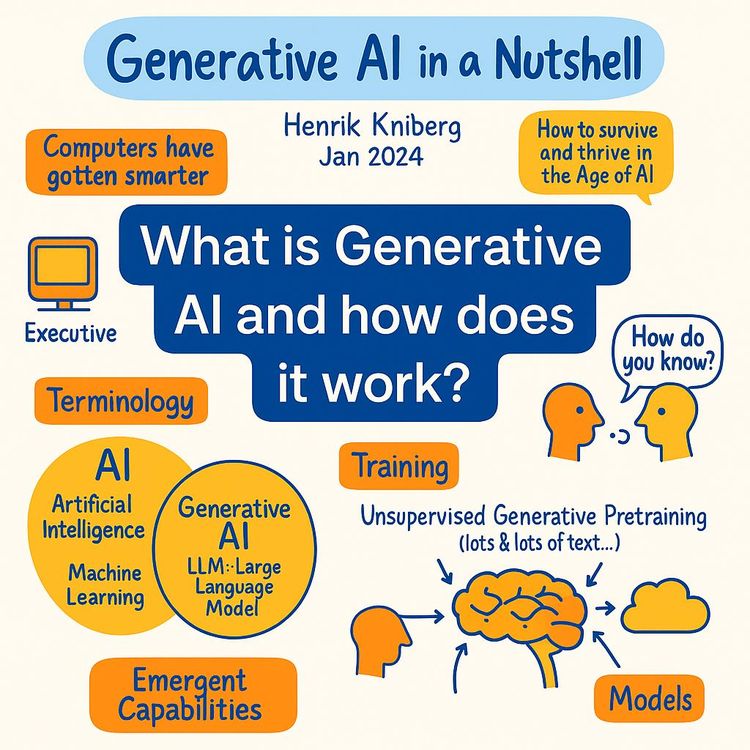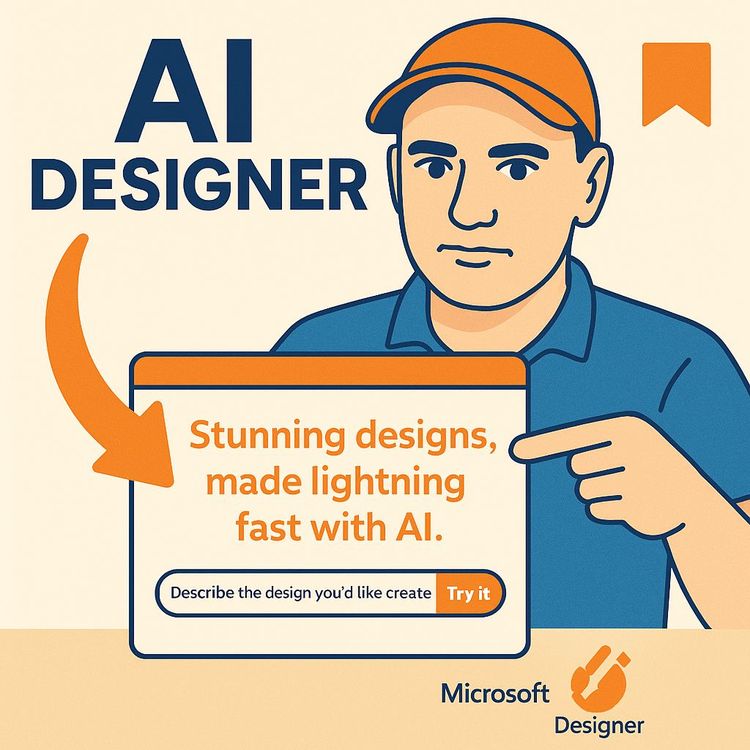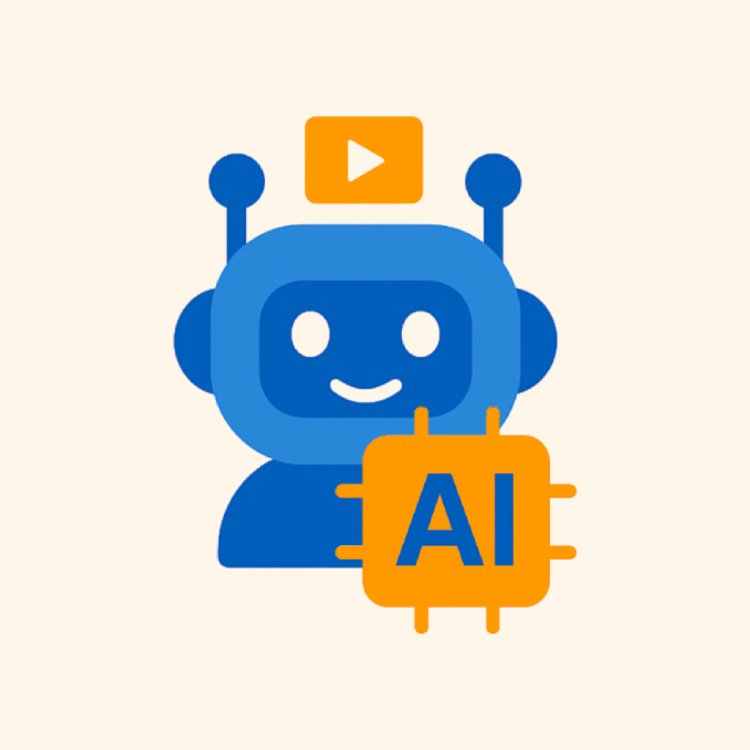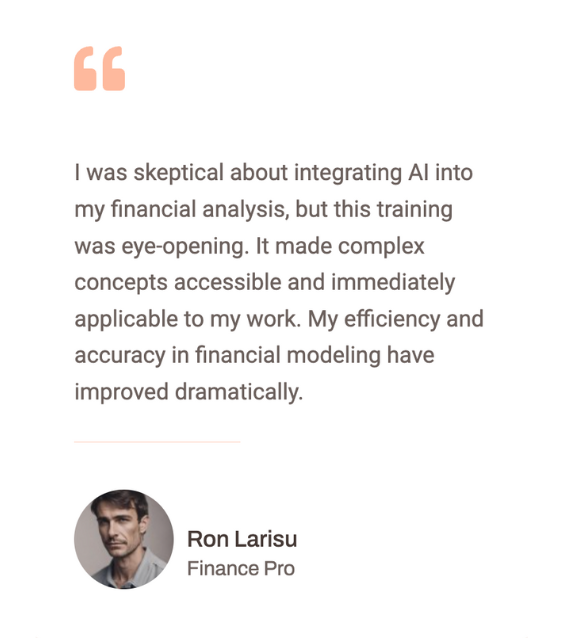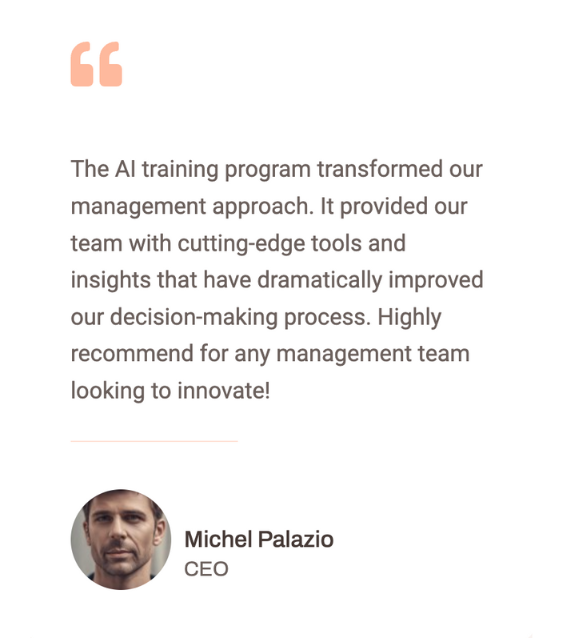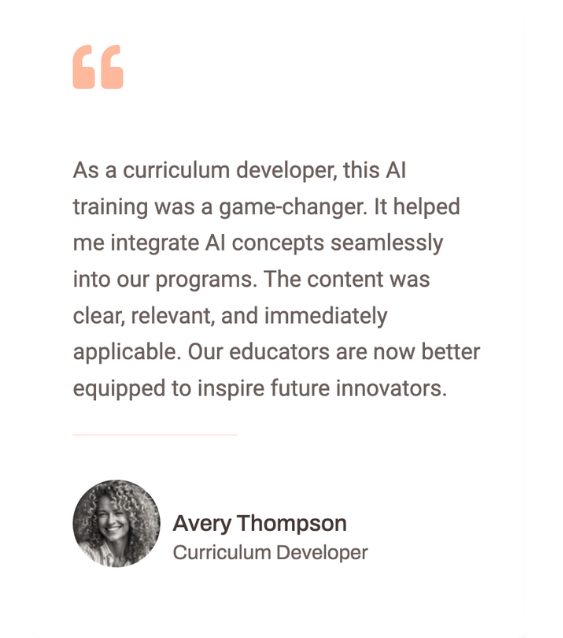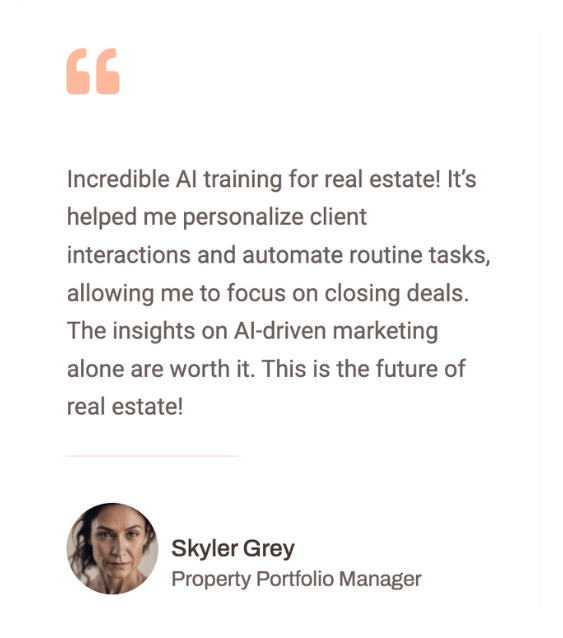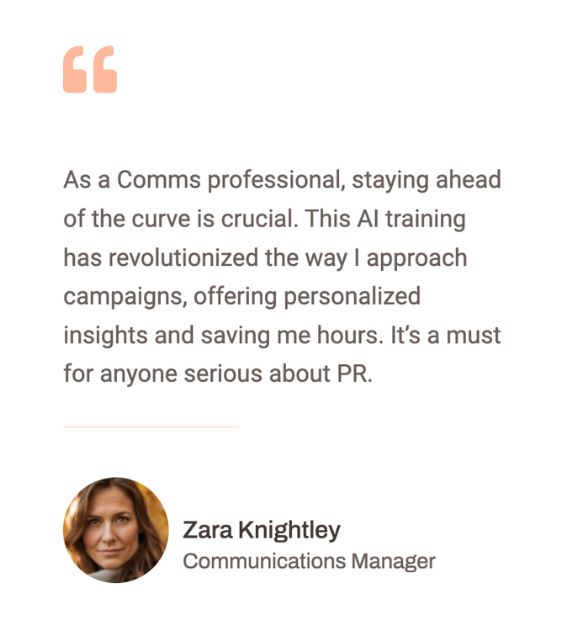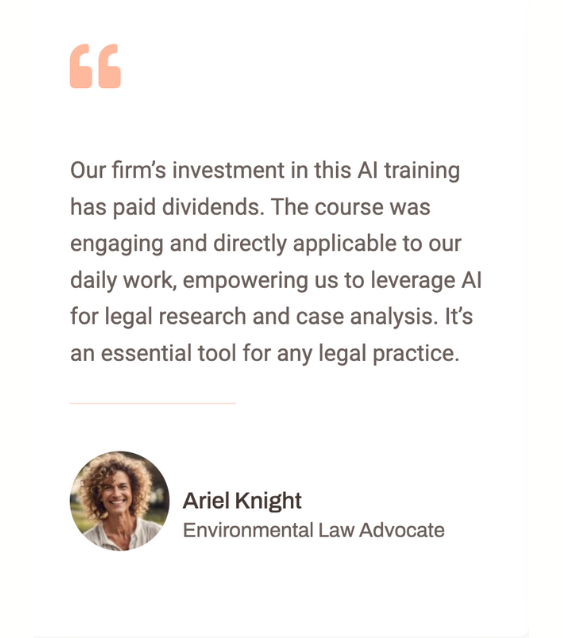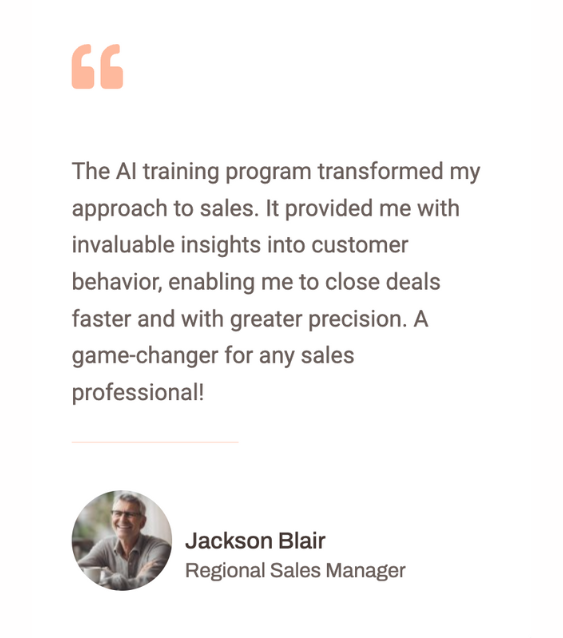Video Course: Part 15 - Using AI for Performance Appraisal
Discover how AI transforms performance appraisals by enhancing objectivity, efficiency, and fairness. Learn to harness AI for real-time feedback, bias reduction, and personalized development plans, creating a supportive and engaging evaluation process.
Related Certification: Certification: Applying AI Techniques for Effective Performance Appraisal
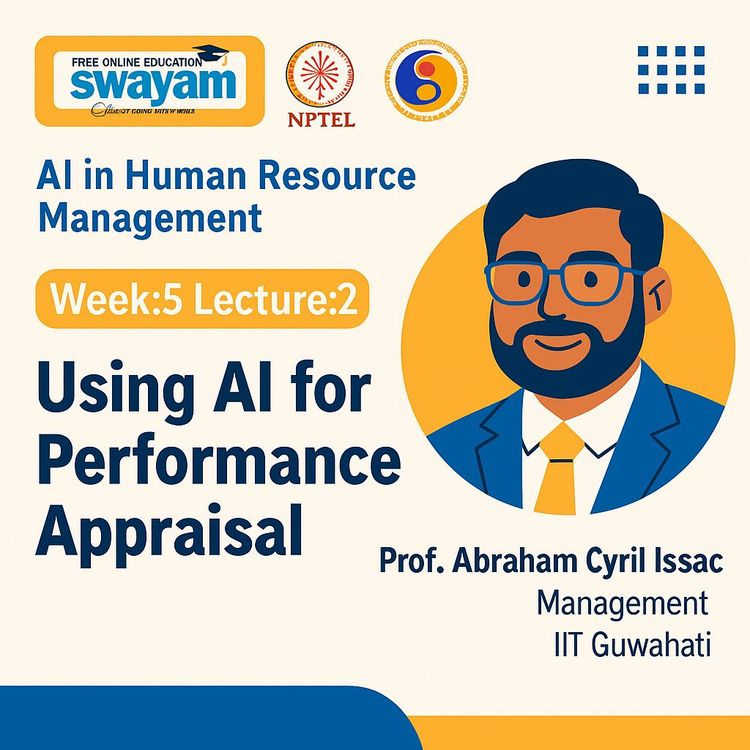
Also includes Access to All:
What You Will Learn
- Explain AI roles and key functionalities in performance appraisal
- Use AI for real-time feedback, goal tracking, and data analysis
- Identify and mitigate bias in AI-driven evaluations
- Develop personalised employee development plans from AI insights
- Evaluate and select AI tools (e.g., ADP Workforce Now) for HR use
Study Guide
Introduction
Welcome to the comprehensive course on 'Using AI for Performance Appraisal.' In this course, we will delve into the transformative role of Artificial Intelligence (AI) in enhancing the performance appraisal processes within organizations. Performance appraisal is a critical function in Human Resource Management (HRM), and integrating AI into this process can significantly improve its objectivity, efficiency, and effectiveness. By the end of this course, you will have a thorough understanding of how AI can be leveraged to streamline performance evaluations, reduce biases, and foster a culture of continuous improvement. Let's start this journey to unlock the potential of AI in performance appraisal.
The Significance of Objective Performance Measurement
Performance appraisal is one of the most objective measures within an organization. It involves a systematic evaluation process that assesses an employee's performance, skills, and contributions over a specific period. Dr. Abraham Sisak, an expert in this field, emphasizes the importance of clear-cut metrics and methods in performance appraisal. AI can add an edge to this objectivity by providing data-driven insights that help in measuring performance accurately. For instance, AI can analyze data from various sources like self-assessments and peer reviews to provide a holistic view of an employee's performance.
Example 1: A company using AI to aggregate performance data from multiple sources, such as project management tools and feedback forms, to create a comprehensive performance report.
Example 2: An AI system that uses sentiment analysis on employee feedback to identify areas of improvement objectively.
Defining Performance Appraisal
Performance appraisal is defined as a systematic evaluation process that assesses an employee's performance, skills, and contributions over a specific period. This process involves gathering information against predetermined criteria, including individual goals, organizational objectives, competencies, and behavioral aspects. It serves as a critical HRM function for evaluating performance, providing feedback, and setting future development goals.
Example 1: A retail company evaluates its sales staff based on sales targets, customer feedback, and teamwork skills.
Example 2: A tech firm assesses its developers on coding proficiency, project completion timelines, and innovation contributions.
Key Functionalities of AI in Performance Appraisal
The integration of AI in performance appraisal is transforming the process through several key functionalities:
Data Collection and Analysis
AI tools automate the collection of performance data from various sources, such as self-assessments, peer reviews, and manager evaluations. This provides a more holistic view of an employee's performance.
Example 1: An AI system that automatically gathers feedback from project management software, emails, and chat logs to assess employee collaboration.
Example 2: A platform that consolidates data from customer service interactions to evaluate a support agent's performance.
Real-time Feedback
AI systems can provide continuous feedback by analyzing ongoing performance data. This allows managers to address issues promptly rather than relying solely on annual reviews.
Example 1: An AI tool that alerts a manager when an employee's performance metrics drop below a certain threshold.
Example 2: A system that sends real-time notifications to employees about their progress towards meeting their goals.
Goal Tracking
AI facilitates the tracking of individual and team goals, ensuring employees remain aligned with organizational objectives.
Example 1: An AI dashboard that visualizes team progress towards quarterly sales targets.
Example 2: A goal-setting application that uses AI to suggest adjustments based on historical performance data.
Bias Reduction
AI algorithms can help identify and mitigate biases in performance evaluations by analyzing patterns in data, leading to more objective assessments and fairer evaluations.
Example 1: An AI tool that reviews language used in performance reviews to identify potential gender bias.
Example 2: A system that compares performance ratings across different demographics to ensure fairness.
Personalised Development Plans
Based on performance analysis, AI can recommend tailored development opportunities that align training with individual career aspirations and skill gaps.
Example 1: An AI platform that suggests online courses for employees based on their performance reviews.
Example 2: A career development tool that recommends mentorship opportunities based on an employee's goals.
Benefits of Using AI in Performance Appraisal
The integration of AI in performance appraisal offers several benefits:
Increased Efficiency
Automation of data collection and analysis reduces the administrative burden on HR teams and managers, freeing up time for meaningful conversations about performance and development.
Example 1: An HR department that uses AI to automate the compilation of performance reports, saving hours of manual work.
Example 2: A manager who leverages AI-generated insights to quickly identify top performers for recognition.
Enhanced Accuracy
AI-driven insights provide a more accurate assessment of employee performance by relying on comprehensive data rather than subjective observations, leading to fairer evaluations.
Example 1: A system that uses AI to cross-reference employee performance data with industry benchmarks for accurate evaluations.
Example 2: An AI tool that identifies discrepancies in performance ratings and suggests adjustments for consistency.
Continuous Improvement
Real-time feedback mechanisms foster a culture of continuous improvement where employees receive ongoing support and guidance.
Example 1: An AI-driven app that provides employees with daily performance tips based on their recent activities.
Example 2: A company that uses AI to track employee progress towards personal development goals and provides feedback.
Actionable Insights
AI tools analyze large volumes of data to uncover trends and patterns, enabling managers to make informed decisions about promotions and development.
Example 1: A manager who uses AI-generated insights to identify high-potential employees for leadership programs.
Example 2: A dashboard that visualizes employee performance trends over time to aid in strategic planning.
Employee Engagement
Personalized feedback and development recommendations enhance employee engagement as employees feel valued when their growth is actively supported.
Example 1: An AI system that sends personalized career development plans to employees based on their strengths and interests.
Example 2: A feedback tool that allows employees to set personal goals and receive AI-generated suggestions for achieving them.
Challenges in Implementing AI for Performance Appraisal
Alongside the benefits, there are key challenges in implementing AI for performance appraisal:
Data Quality Dependence
The effectiveness of AI heavily relies on the quality of the data collected. Inaccurate or incomplete data can lead to misleading insights and poor decision-making.
Example 1: An organization that struggles with inconsistent data input, leading to unreliable AI-generated reports.
Example 2: A company that invests in data cleaning processes to ensure high-quality input for their AI systems.
Resistance to Change
Employees and managers may resist AI-driven processes due to fears of job displacement or concerns about the accuracy of automated evaluations. Effective change management is crucial.
Example 1: A company that conducts workshops to educate employees about the benefits of AI in performance appraisal.
Example 2: A manager who addresses team concerns by demonstrating the accuracy and fairness of AI evaluations.
Over-reliance on Technology
AI should enhance, not replace, human judgment. Balancing AI insights with personal interactions is vital for maintaining trust.
Example 1: A manager who combines AI insights with personal observations to provide comprehensive feedback.
Example 2: A company policy that mandates human review of AI-generated performance reports.
Ethical Considerations
The use of AI in performance appraisals raises ethical concerns regarding privacy and transparency. Organizations must ensure employees are aware of how their data is being used and comply with relevant regulations.
Example 1: An organization that implements a transparent data policy, informing employees about data collection and usage.
Example 2: A company that conducts regular audits to ensure compliance with data protection laws.
Best Practices for Using AI in Performance Appraisal
To maximize the benefits and mitigate the challenges, several best practices are recommended:
Combining AI and Human Insight
AI-generated insights should supplement, not replace, human judgment. Managers should review AI outputs to add context and personal understanding.
Example 1: A manager who uses AI data as a starting point for performance discussions, adding personal insights.
Example 2: A team that holds regular meetings to discuss AI-generated performance insights and contextualize them.
Ensuring Data Transparency
Clearly communicate with employees about what data is being collected, how it will be used, and the benefits it provides to foster trust.
Example 1: An organization that holds informational sessions to explain the AI-driven appraisal process to employees.
Example 2: A company that provides access to personal data profiles so employees can see what information is being used.
Regularly Reviewing AI Algorithms
Continuously evaluate the algorithms to ensure they remain unbiased and effective. Regular audits can identify potential biases or inaccuracies.
Example 1: A company that conducts quarterly reviews of their AI systems to ensure fair evaluations.
Example 2: An organization that partners with external experts to audit AI algorithms for bias.
Providing Training for Managers
Equip managers with the necessary training to effectively use AI tools, interpret data insights, and engage meaningfully with employees based on those insights.
Example 1: A workshop series for managers focused on understanding AI-generated data and using it in performance discussions.
Example 2: An online course that trains managers on the ethical use of AI in performance appraisals.
Soliciting Employee Feedback
Regularly gather feedback from employees about their experiences with the AI-driven performance appraisal process to inform improvements.
Example 1: A company that conducts regular surveys to gather employee opinions on the AI appraisal system.
Example 2: An organization that holds focus groups to discuss employee experiences with AI in performance evaluations.
AI Tools for Performance Appraisal (Example: ADP Workforce Now)
ADP Workforce Now is an example of an AI tool that integrates AI to streamline HR tasks, including performance appraisal. Key features include personalized development insights, performance analytics, AI-driven recommendations for learning and development, and 360° feedback capabilities. This tool enhances the objectivity of performance appraisals by providing managers with comprehensive data and insights.
Example 1: A manager using ADP Workforce Now to track employee progress and provide targeted development suggestions.
Example 2: An HR team leveraging the platform's analytics to identify trends and inform strategic decisions.
Conclusion
The integration of AI into performance appraisal processes offers significant potential for organizations to enhance the objectivity, efficiency, and overall effectiveness of employee evaluations. By automating data collection, providing real-time feedback, reducing bias, and offering personalized development plans, AI contributes to a more fair and engaging performance appraisal process that supports employee growth and retention. However, organizations must be mindful of the challenges related to data quality, resistance to change, over-reliance on technology, and ethical considerations. By adopting best practices that balance AI insights with human judgment, organizations can leverage the power of AI to create a more robust and impactful performance management system. As you conclude this course, remember that the thoughtful application of these skills will be key to successfully integrating AI into your performance appraisal processes.
Podcast
There'll soon be a podcast available for this course.
Frequently Asked Questions
Introduction
This FAQ section aims to provide a comprehensive understanding of how AI is transforming performance appraisal processes. Whether you're new to the concept or an experienced professional, this guide will address common questions and offer practical insights into integrating AI into performance management. From understanding basic functionalities to navigating ethical considerations, this resource is designed to support your journey in leveraging AI for performance appraisal.
What is performance appraisal, and why is AI being integrated into this process?
Performance appraisal is a systematic evaluation process where an organisation assesses an employee's job performance, skills, and contributions over a specific period against predetermined criteria, such as individual goals, organisational objectives, competencies, and sometimes behavioural aspects. AI is being integrated to enhance the objectivity and efficiency of this process. Traditional performance appraisals can be subjective; AI tools can analyse data from various sources to provide a more holistic and data-driven view of an employee's performance. This technology aims to add an edge to the objectivity associated with performance appraisal by automating data collection and analysis, providing real-time feedback, facilitating goal tracking, reducing bias, and suggesting personalised development plans.
What are the key functionalities of AI in performance appraisal?
AI offers several key functionalities that transform the performance appraisal process. Firstly, data collection and analysis are automated, gathering information from self-assessments, peer reviews, and manager evaluations to create a comprehensive view of performance. Secondly, AI systems can provide real-time feedback by continuously analysing performance data and alerting managers to issues as they arise, enabling timely intervention. Goal tracking is also enhanced, with AI tools monitoring progress against predefined objectives to ensure alignment with organisational goals. Furthermore, AI algorithms can help in bias reduction by analysing patterns in data to identify and mitigate biases in evaluations, leading to fairer assessments. Finally, based on performance analysis, AI can recommend personalised development plans, aligning training with individual career aspirations and skill gaps.
What are the primary benefits of using AI in performance appraisal?
The adoption of AI in performance appraisal yields several significant benefits. Increased efficiency is achieved through the automation of data collection and analysis, reducing the administrative burden on HR teams and managers, freeing up time for more meaningful performance and development conversations. Enhanced accuracy results from AI-driven insights based on comprehensive data, leading to fairer and more acceptable evaluations compared to subjective observations. Continuous improvement is fostered through real-time feedback mechanisms, allowing for ongoing support and guidance. Actionable insights are generated by AI tools analysing large datasets to uncover trends and patterns, enabling informed decisions about promotions and development. Lastly, employee engagement can be improved by providing personalised feedback and development recommendations, making employees feel valued and supported in their growth.
What are the main challenges in implementing AI for performance appraisal?
Despite the benefits, there are notable challenges in implementing AI for performance appraisal. Data quality dependence is a significant concern, as the effectiveness of AI tools relies heavily on accurate and complete data; inaccurate data can lead to misleading insights. Resistance to change from both employees and managers, due to fears of job displacement or concerns about the accuracy of automated evaluations, needs to be addressed through effective change management strategies. Over-reliance on technology is another challenge; while AI can enhance the process, it should not replace human judgment entirely, and a balance between AI insights and personal interactions is crucial. Finally, ethical considerations regarding data privacy and transparency must be addressed to ensure employees are aware of how their data is being used and that it complies with regulations.
What are some best practices for using AI in performance appraisal effectively?
To maximise the benefits of AI in performance appraisal, several best practices should be followed. Combining AI insights with human judgment is essential, ensuring that managers review AI outputs, adding context and personal understanding to evaluations. Data transparency is crucial; organisations should clearly communicate with employees about the data being collected, how it will be used, and its benefits to foster trust. Regular review and feedback of AI algorithms are necessary to ensure they remain unbiased and effective, with regular audits to identify potential biases or inaccuracies. Training for managers on how to effectively use AI tools is vital, including understanding how to interpret data insights and engage meaningfully with employees. Lastly, soliciting employee feedback on their experiences with the AI-driven appraisal process can inform improvements and enhance the system's effectiveness.
Can you provide an example of an AI tool used in performance appraisal and describe its key features?
ADP Workforce Now is an example of a platform that integrates AI to streamline various HR tasks, including performance appraisal. Key features include personalised development insights, providing AI-driven recommendations for learning and development based on performance strengths and areas for improvement. It also offers performance analytics, giving a high-level summary and detailed progress of performance reviews. Furthermore, it includes 360-degree feedback capabilities, allowing for the gathering of insights from multiple sources such as peers and subordinates, contributing to a more rounded evaluation. The platform provides a portal for managers to track and manage employee performance reviews, from initiation to finalisation, including the ability to provide ratings, feedback, and release reviews to employees.
How does a manager typically interact with an AI-powered performance appraisal system like ADP Workforce Now?
A manager typically interacts with an AI-powered performance appraisal system like ADP Workforce Now through an online portal. They would log in using their credentials and navigate to the performance management section or dashboard. From there, they can see a summary of their team's performance review progress. The system allows managers to access individual employee performance review forms, enter their responses and ratings, and submit them. Managers can also track the status of reviews, see when they need to take action, and access insights generated by the AI regarding employee performance and development needs. Once the review is finalised by HR, managers can schedule and conduct one-on-one meetings with employees to discuss the feedback. They can also release the completed reviews to employees through the system, allowing employees to view and acknowledge them electronically.
What are the ethical considerations that organisations must keep in mind when using AI in performance appraisal?
Organisations must be mindful of several ethical considerations when implementing AI in performance appraisal. Privacy is paramount; ensuring that employee data is collected, stored, and used in a manner that respects their privacy rights and complies with data protection regulations is crucial. Transparency is equally important; employees should be informed about what data is being collected, how AI is being used to analyse their performance, and the purpose of these evaluations. Organisations need to be vigilant about potential bias in AI algorithms; regular audits and reviews are necessary to identify and mitigate any unintended discriminatory outcomes. Furthermore, the use of AI should not lead to a complete lack of human oversight; maintaining human judgment in the final evaluation process is essential to ensure fairness and to consider contextual factors that AI might overlook.
Why is data quality important in AI-driven performance appraisal?
Data quality is crucial because the accuracy and effectiveness of AI systems heavily rely on the data they process. High-quality data ensures that AI algorithms can provide reliable insights and recommendations. Poor data quality can lead to misleading conclusions, inaccurate evaluations, and unfair assessments, ultimately undermining trust in the system and its outcomes.
Why is it important to balance AI-generated insights with human judgement in performance evaluations?
Balancing AI-generated insights with human judgement is important because AI, while powerful in analysing data, may lack the context, personal understanding, and nuanced insights that human managers can provide. Human judgement is essential to consider factors such as team dynamics, individual motivations, and personal circumstances that AI might overlook, ensuring a more comprehensive and fair evaluation process.
How can AI contribute to reducing bias in performance evaluations?
AI can help reduce bias in performance evaluations by analysing large datasets to identify patterns and inconsistencies that might indicate bias. AI algorithms can be trained to focus on objective performance metrics rather than subjective opinions, leading to more consistent and fair evaluations. Regular audits and updates of AI systems can further ensure that any emerging biases are identified and addressed promptly.
How does AI provide real-time feedback in performance appraisal?
AI provides real-time feedback by continuously monitoring performance data and analysing it against predefined goals and metrics. This allows AI systems to alert managers and employees to potential issues or achievements as they occur. Real-time feedback enables timely interventions and adjustments, supporting continuous improvement and development.
What are personalised development plans, and how does AI assist in creating them?
Personalised development plans are tailored strategies designed to help employees enhance their skills and performance based on individual needs and career goals. AI assists in creating these plans by analysing performance data to identify strengths and areas for improvement. AI-generated insights can recommend specific training programs, learning resources, or career paths that align with the employee's aspirations and organisational objectives.
How can organisations foster trust among employees when implementing AI-driven performance appraisal processes?
Organisations can foster trust by ensuring data transparency, clearly communicating how data is collected, used, and protected. Involving employees in feedback processes regarding AI tools and emphasising that AI is a tool to support, not replace, human judgment in evaluations, also builds trust. Regular updates and open discussions about AI's role in performance appraisal can further reassure employees of the system's fairness and benefits.
What is 360-degree feedback, and how does AI enhance this process?
360-degree feedback is a process where an employee receives confidential feedback from multiple sources, including managers, peers, and subordinates. AI enhances this process by efficiently collecting and analysing feedback from diverse sources, providing comprehensive insights into an employee's performance. AI tools can identify trends and areas for improvement, making the feedback more actionable and informative.
How does AI support goal tracking in performance appraisal?
AI supports goal tracking by continuously monitoring progress against predefined objectives and providing updates on achievements or areas needing attention. AI systems can generate reports and visualisations that help managers and employees understand their progress. Automated alerts and reminders keep everyone aligned with organisational goals, facilitating timely adjustments and interventions.
What are actionable insights, and how does AI generate them in performance appraisal?
Actionable insights are findings derived from data analysis that can inform decision-making and drive improvements. AI generates these insights by analysing performance data to uncover patterns, trends, and correlations. AI-driven insights enable managers to make informed decisions about promotions, development opportunities, and performance improvement strategies.
How can AI improve employee engagement in performance appraisal?
AI improves employee engagement by providing personalised feedback and development recommendations, making employees feel valued and supported in their growth. Real-time feedback and goal tracking keep employees informed and motivated. AI-driven insights help managers tailor their interactions and support to individual needs, fostering a more engaging and supportive work environment.
What are common misconceptions about AI in performance appraisal?
Common misconceptions include the belief that AI will completely replace human managers, that AI systems are infallible, and that AI can fully eliminate bias. In reality, AI is a tool to augment human judgment, and its effectiveness depends on data quality and algorithm design. Human oversight remains crucial to ensure fairness and context in evaluations.
What strategies can mitigate challenges in implementing AI for performance appraisal?
To mitigate challenges, organisations should focus on ensuring high data quality, providing training for managers and employees, and fostering a culture of openness and adaptability. Regular audits and updates of AI systems can address biases and inaccuracies. Clear communication and involving employees in the implementation process can reduce resistance to change and build trust.
How should organisations select an AI-powered performance management system?
When selecting an AI-powered performance management system, organisations should consider factors such as data integration capabilities, user-friendliness, customisation options, and vendor support. Evaluating the system's ability to provide actionable insights and align with organisational goals is crucial. Security and compliance features are also important to ensure data privacy and protection.
What are the future trends in AI and performance appraisal?
Future trends include increased integration of AI with other HR technologies, enhanced predictive analytics for talent management, and the use of AI to support diversity and inclusion initiatives. As AI technology evolves, its ability to provide more nuanced and personalised insights will grow. Continuous learning and adaptation of AI systems will further improve their effectiveness and acceptance in performance appraisal processes.
Certification
About the Certification
Show you know how to use AI by mastering techniques that refine performance appraisal processes. This certification highlights your expertise in leveraging AI for fair, data-driven evaluations in any professional setting.
Official Certification
Upon successful completion of the "Certification: Applying AI Techniques for Effective Performance Appraisal", you will receive a verifiable digital certificate. This certificate demonstrates your expertise in the subject matter covered in this course.
Benefits of Certification
- Enhance your professional credibility and stand out in the job market.
- Validate your skills and knowledge in cutting-edge AI technologies.
- Unlock new career opportunities in the rapidly growing AI field.
- Share your achievement on your resume, LinkedIn, and other professional platforms.
How to complete your certification successfully?
To earn your certification, you’ll need to complete all video lessons, study the guide carefully, and review the FAQ. After that, you’ll be prepared to pass the certification requirements.
Join 20,000+ Professionals, Using AI to transform their Careers
Join professionals who didn’t just adapt, they thrived. You can too, with AI training designed for your job.

